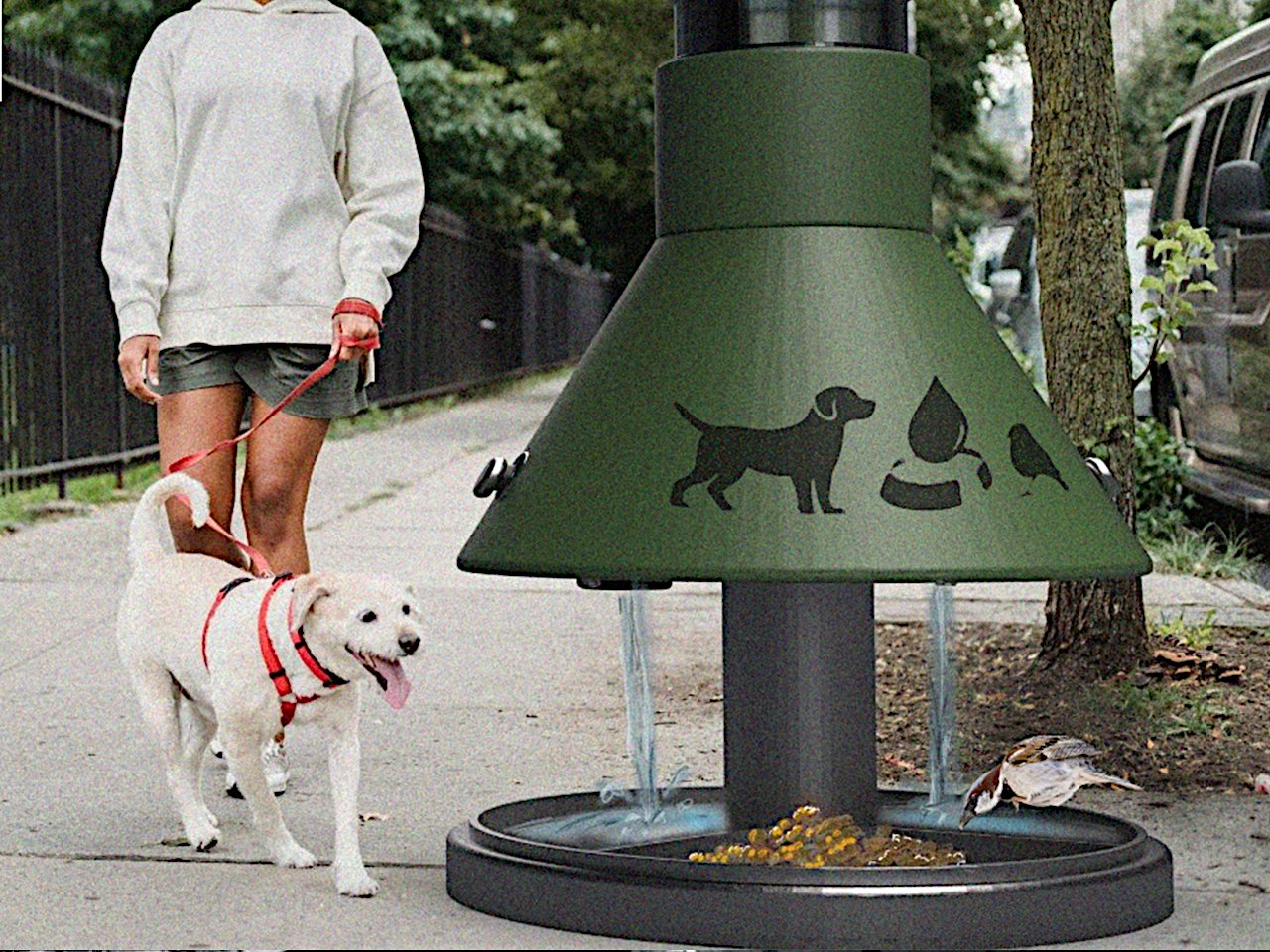In the bustling streets of urban India, where stray animals struggle daily for basic necessities, designer Piyush Prateek has created an ingenious solution that addresses both animal welfare and urban aesthetics. His innovative concept represents a thoughtful approach to street furniture design that serves both human and animal communities. Jalashay is a multifunctional water station designed specifically for urban environments where stray dogs and cats roam the streets searching for clean drinking water. The name itself, derived from Sanskrit roots meaning “water shelter,” perfectly encapsulates the project’s mission to provide accessible hydration points throughout city landscapes.
The design features a distinctive cone-shaped structure in calming green tones, strategically positioned at street level to accommodate animals of various sizes. What sets Jalashay apart from conventional water bowls is its integrated approach to urban planning. The station includes a circular water basin at ground level, easily accessible to both small cats and larger dogs, while maintaining a sleek profile that complements modern street architecture.
Designer: Piyush Prateek
The technical brilliance of Jalashay lies in its self-sustaining water system. The upper portion houses a water storage tank that can be refilled manually or connected to municipal water supplies. A controlled dispensing mechanism ensures consistent water flow while preventing waste and overflow. The broad base provides stability against weather conditions and accidental impacts, while the tapered design prevents water stagnation and makes cleaning straightforward.
Beyond functionality, the designer has considered the social dynamics of urban spaces. The design encourages community engagement, as residents and passersby can easily refill the station, fostering a sense of collective responsibility toward street animals. The distinctive silhouette also serves as a visual reminder of compassionate urban living, potentially inspiring similar initiatives in other neighborhoods.
The environmental benefits extend beyond animal welfare. By providing designated water sources, Jalashay reduces the likelihood of animals seeking water from polluted sources like gutters or puddles, which can spread disease. The centralized design also makes it easier for animal welfare organizations and municipal services to monitor and maintain water quality standards. From a manufacturing perspective, the concept demonstrates sustainable design thinking. The materials appear durable yet lightweight, suitable for mass production while maintaining cost-effectiveness. The modular design could allow for easy transportation and installation across diverse urban settings, from busy commercial districts to residential neighborhoods.
Jalashay embodies a philosophy of inclusive urban planning where the needs of all city inhabitants, human and animal alike, are considered. As cities worldwide grapple with growing stray animal populations, Piyush Prateek’s concept offers a scalable, practical solution that could significantly improve urban animal welfare while enhancing community engagement and environmental consciousness.
The post Jalashay transforms urban water access for stray animals first appeared on Yanko Design.

